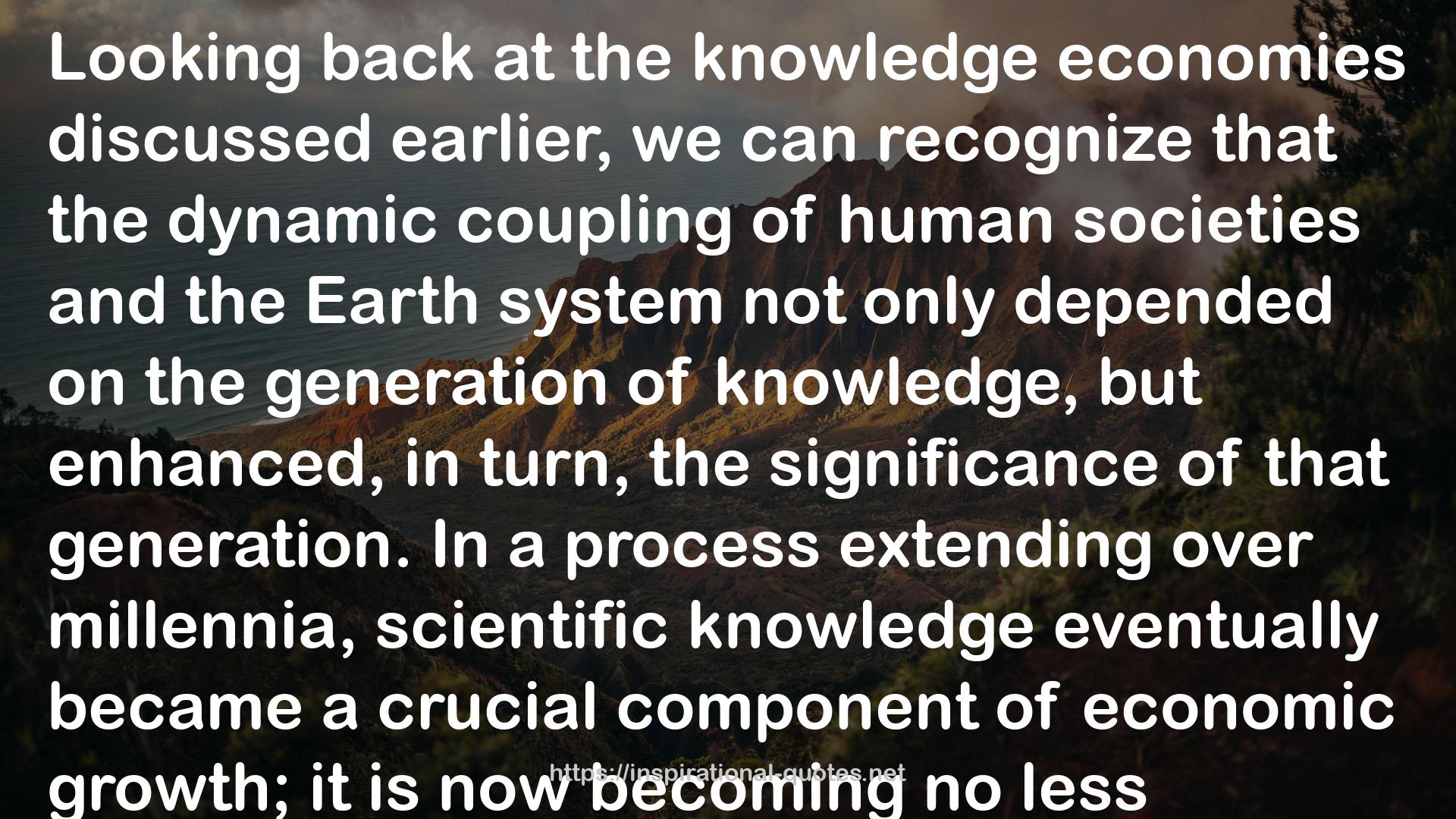" Looking back at the knowledge economies discussed earlier, we can recognize that the dynamic coupling of human societies and the Earth system not only depended on the generation of knowledge, but enhanced, in turn, the significance of that generation. In a process extending over millennia, scientific knowledge eventually became a crucial component of economic growth; it is now becoming no less important in coping with its consequences. Substantial anthropogenic change on a global scale was evidently already characteristic of the Holocene and the late Pleistocene, from the human-induced extinction of great mammals via Neolithization and urbanization to the Scientific and Industrial Revolutions. What characterizes the Anthropocene is the need to actively prevent the Earth system from transgressing planetary boundaries. The emergence of this need is closely related to the cascade of evolutionary processes described above. Just as cultural evolution started as a side-show of biological evolution before it became the conditio humana (the essential condition of human life), epistemic evolution, that is, the growing dependence of human societies on knowledge economies producing scientific knowledge, was, for a long time, no more than a tangential aspect of cultural evolution. But with the onset of the Anthropocene, the survival of human culture as we know it hinges on this. "
― , The Evolution of Knowledge: Rethinking Science for the Anthropocene
